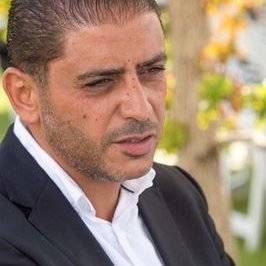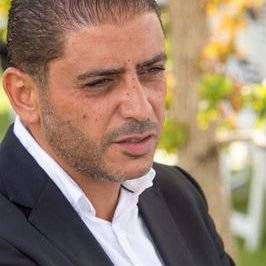The representative of the Trader vessel owners, lawyer Tannous Franjieh, clarified the misconceptions that appeared in the media regarding the Trader vessel case.
The National News Agency reported a statement from lawyer Tannous Franjieh, acting on behalf of Mr. Kamel Mohammed Al-Haj Kachaf and Mr. Mohammad Riad Amin, addressing the media's claims and inaccuracies. Franjieh indicated that the discussion of the indictment decision issued by the primary investigating judge in the North regarding the "Trader" vessel should be left to the public trials before the single criminal judge in Tripoli, where the natural place to exercise the right to defense resides, thus revealing this decision and exposing its factual and legal flaws. However, raising the issue in the media in a distorted and prolonged manner, possibly intentionally, necessitated the clarification of the facts.
Franjieh further stated that the client Kamel Mohammed Al-Haj Kachaf relinquished his share in the ownership of the vessel to the other client, Mr. Mohammad Riad Amin, through a bill of sale dated January 4, 2016, organized at the office of notary public in Tripoli, Ms. Mona Al-Halab, under number 118/2016, and duly registered with the pertinent British authorities where the vessel's records are kept: IMO NB 8912497. Since the date of the relinquishment, the relationship between the client Kamel Al-Kachaf and this vessel and its operations has been completely severed, and the other client Mohammad Amin has become its sole owner, indicating that an official copy of the relinquishment contract was presented in the investigative proceedings, noting that the indictment decision failed to reference it for reasons yet to be determined.
Lawyer Franjieh noted that Mr. Mohammad Riad Amin rented this vessel with its crew to the Turkish company Essential Services Worldwide, through Mr. George Jaja, the owner of SAFE SEA SERVICES, and the vessel was handed over to the chartering company on February 1, 2016, and it has been under their complete management according to the electronically concluded contract, which was also presented in the investigative file.
Franjieh continued his account, mentioning that in late February 2016, his client Mohammad Amin was informed by the vessel's captain, that after departing from Mersin port in Turkey and due to bad weather conditions, he notified the Cypriot authorities and UNIFIL forces of his need to temporarily stop in Cypriot territorial waters until the storm subsided and continue navigation towards West Africa. UNIFIL and the Cypriot maritime authorities then inspected the vessel, matching its cargo with its documents, and allowed it to pass with a direction to the Greek port of Souda for two reasons: first, that a shipment of ammonium nitrate weighing ten tons intended for Congo was packaged in violation of international standards (which, as is known in maritime law, is not the carrier's responsibility regarding the goods and how they are packaged on land); and second, the vessel was carrying 6,400 hunting rifles whose original destination, according to the manifest, was Beirut port; however, this destination had been altered by the Turkish company MAVIDENIZ LOJISTICK, which exported these rifles, as soon as the vessel left Mersin, stating to the captain before reaching Cypriot waters that it should not pass through Beirut port and should keep this cargo on board until reaching Congo, otherwise, the captain would bear responsibility if he failed to comply.
Lawyer Franjieh pointed out that his client Mohammad Amin insisted with the captain that he must adhere to UNIFIL's instructions and the measures determined by the Greek authorities after inspecting the vessel at Souda port, regardless of the consequences, confirming that this is supported by satellite email correspondence via INMARSAT C presented in the initial and investigative inquiries. He pointed out that the Greek authorities decided to unload the container of nitrates and the hunting weapons at the mentioned port and allowed the vessel to continue its course with 570,000 pieces of military weaponry bound for Cameroon (Douala). The vessel has since then navigated the seas and carried hazardous goods under its licensing without any issues.
Franjieh continued the lawyer's statement by indicating that the unloading of the hunting weapons at the Greek port of Souda was executed after the Greek authorities confirmed with their Lebanese counterparts that Mr. Khaled Yassin was not the actual importer of these weapons and that the order sent under his company was fraudulent and he had no relation to it. It is worth noting that loading goods onto any vessel does not require prior approval from the destination country, as when the vessel arrives at the intended port, the cargo that needs such approval remains on board until the necessary approvals are obtained; this is the exclusive responsibility of the importer, not the carrier or the exporter, as established by the fundamentals of maritime transport law. If we take into consideration the captain receiving notice, immediately upon the vessel's departure from Mersin port, not to pass through Beirut and to keep the hunting weapons on board until reaching Congo; and if we trace the vessel's path via satellite, which proves it took a navigation route that keeps it away from Lebanese territorial waters, we can conclude from these two proven facts, supported by documents in the investigative file, that the vessel would not have diverted to Beirut port at all, and that the goal of falsifying the order under Khaled Yassin's company was solely to enable the export of hunting weapons from Turkey to send them somewhere else, certainly not Lebanon. However, it seems that some individuals who became aware of the situation seized the opportunity to persuade Mr. Khaled Yassin to renew his permit, endorse the order, and have these weapons flown into Beirut for sale and profit-sharing. Thus, without calculation, we found ourselves embroiled in a criminal case solely caused by "greed," not ammonium nitrate, nor weapons, nor conspiracy, nor interference in regional conflicts, or any of the fanciful heroics that some media outlets circulated quoting sources that surely do not know the truth, or know it and seek to cover it up for sinister motives.
After all these facts and information, lawyer Franjieh questioned the responsibility of the clients, where one of them had sold his share before the vessel's departure to Turkey, and the other rented it with its crew and had no relation to its management when the events occurred. Anyone reading in the indictment decision the phrase "it has become customary" to buy weapons, ammunition, and explosives perhaps....... understands that those engaged in such activities are an organized gang that has practiced this activity repeatedly. Yet, is it right for the media to attribute such matters to the clients based on conjecture, just because a vessel owned by one of them was rented out and transported goods once according to official permits issued by their competent authorities, and has complied, and still complies throughout its ongoing navigation to the prevailing laws? And why did the indictment decision limit itself to attributing to the accused crimes of attempted fraud and ordinary forgery in a signed document without addressing all the other crimes reported by the media?
Lawyer Tannous Franjieh concluded his statement by asserting that the justifications in the indictment decision are nothing but speculations and interpretations that do not hold up against solid legal discussion, considering that within the logic of this very decision, he is also entitled to speculate and interpret that the crime of the Beirut Port explosion on August 4 is the cause of all this uproar; especially since the Trader vessel file has not moved seriously since 2016 until August 8, 2020, indicating that it was leaked by some party and suddenly stirred up in the media on OTV for the first time on August 17, 2020; questioning the intent behind raising sea dust in the Tripoli Palace of Justice and whether it is to cover up the fungal cloud that erupted from Beirut port, based on the principle of "one thing reminds of another," which has no place in legal science, affirming the meeting before the competent court to demonstrate the fragility of the claims and the innocence of the clients.




